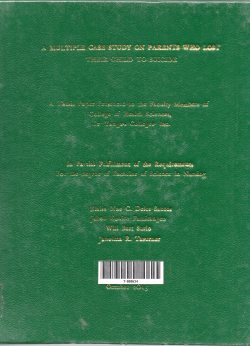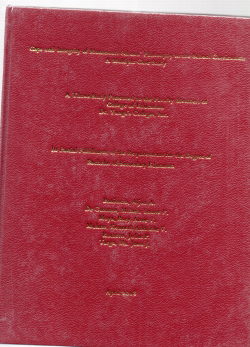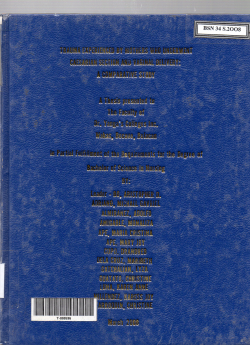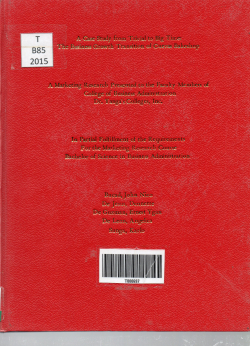A Change of Heart: A Multiple Case Study of Birth Mothers who Changed Decision about Adoption after Rooming-in
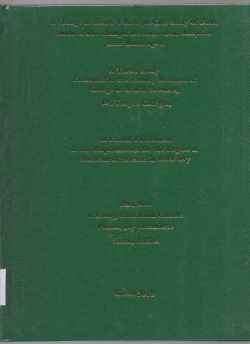
Type
Thesis
Authors
Category
CHS
[ Browse Items ]
Subject
rooming-in
Abstract
Separating infants from their mothers after birth can reduce the frequency of breastfeeding and the amount of breast milk a mother produces. Whereas infants staying together with the mother throughout their hospital stay would have more frequent suckling of the breast and thus promote closeness and bonding. Many hospitals have now started to keep the mother and baby in the same room, particularly since the advent of the
WHO/UNICEF Baby Friendly Hospital Initiative in 1991. This systematic review aimed to establish from randomised controlled trials whether separate care or rooming in after birth resulted in a longer duration of exclusive breastfeeding once they had returned home. With these hospitals, ying-in and other health institutions encourage the use of
rooming-in. Rooming-in is the term currently in use to designate the hospital arrangement whereby a mother may have her newborn baby in a crib by her bedside whenever she wishes. This study primarily goes on a multiple case study about birth mothers who changed decision about adoption after rooming-in. In particular, the researchers seek to answer the following questions (1) how does rooming-in promote maternal attachment to a child who is for adoption. (2) How do the birth mothers from each case demonstrate attachment to the child during the rooming-in process (3) how
does rooming-in affect the decision of birth mothers to disrupt adoption (4) how may all the cases be summarized using themes to reflect the experiences of birth mothers who changed decision about adoption after being involved in rooming-in. The themes include (1) Fortifying the Connection through Rooming-in which focuses on the empowerment of maternal attachment of child to birth mothers through rooming-in, (2)
Making Connection through Rooming-in focuses primarily on building of attachmen
of child to birth mothers and (3) Connection leading to Disruption, This consequently
leads to the central concept of this study which is "A Change of Heart" that significantly
implies that rooming-in has directed them to disrupt adoption, as theirs hearts are moved
by the attachment they have fortified with their child and decided to raise them,
WHO/UNICEF Baby Friendly Hospital Initiative in 1991. This systematic review aimed to establish from randomised controlled trials whether separate care or rooming in after birth resulted in a longer duration of exclusive breastfeeding once they had returned home. With these hospitals, ying-in and other health institutions encourage the use of
rooming-in. Rooming-in is the term currently in use to designate the hospital arrangement whereby a mother may have her newborn baby in a crib by her bedside whenever she wishes. This study primarily goes on a multiple case study about birth mothers who changed decision about adoption after rooming-in. In particular, the researchers seek to answer the following questions (1) how does rooming-in promote maternal attachment to a child who is for adoption. (2) How do the birth mothers from each case demonstrate attachment to the child during the rooming-in process (3) how
does rooming-in affect the decision of birth mothers to disrupt adoption (4) how may all the cases be summarized using themes to reflect the experiences of birth mothers who changed decision about adoption after being involved in rooming-in. The themes include (1) Fortifying the Connection through Rooming-in which focuses on the empowerment of maternal attachment of child to birth mothers through rooming-in, (2)
Making Connection through Rooming-in focuses primarily on building of attachmen
of child to birth mothers and (3) Connection leading to Disruption, This consequently
leads to the central concept of this study which is "A Change of Heart" that significantly
implies that rooming-in has directed them to disrupt adoption, as theirs hearts are moved
by the attachment they have fortified with their child and decided to raise them,
Number of Copies
1
| Library | Accession No | Call No | Copy No | Edition | Location | Availability |
|---|---|---|---|---|---|---|
| Main | 607 | T C456 2018 | 1 | Yes |
